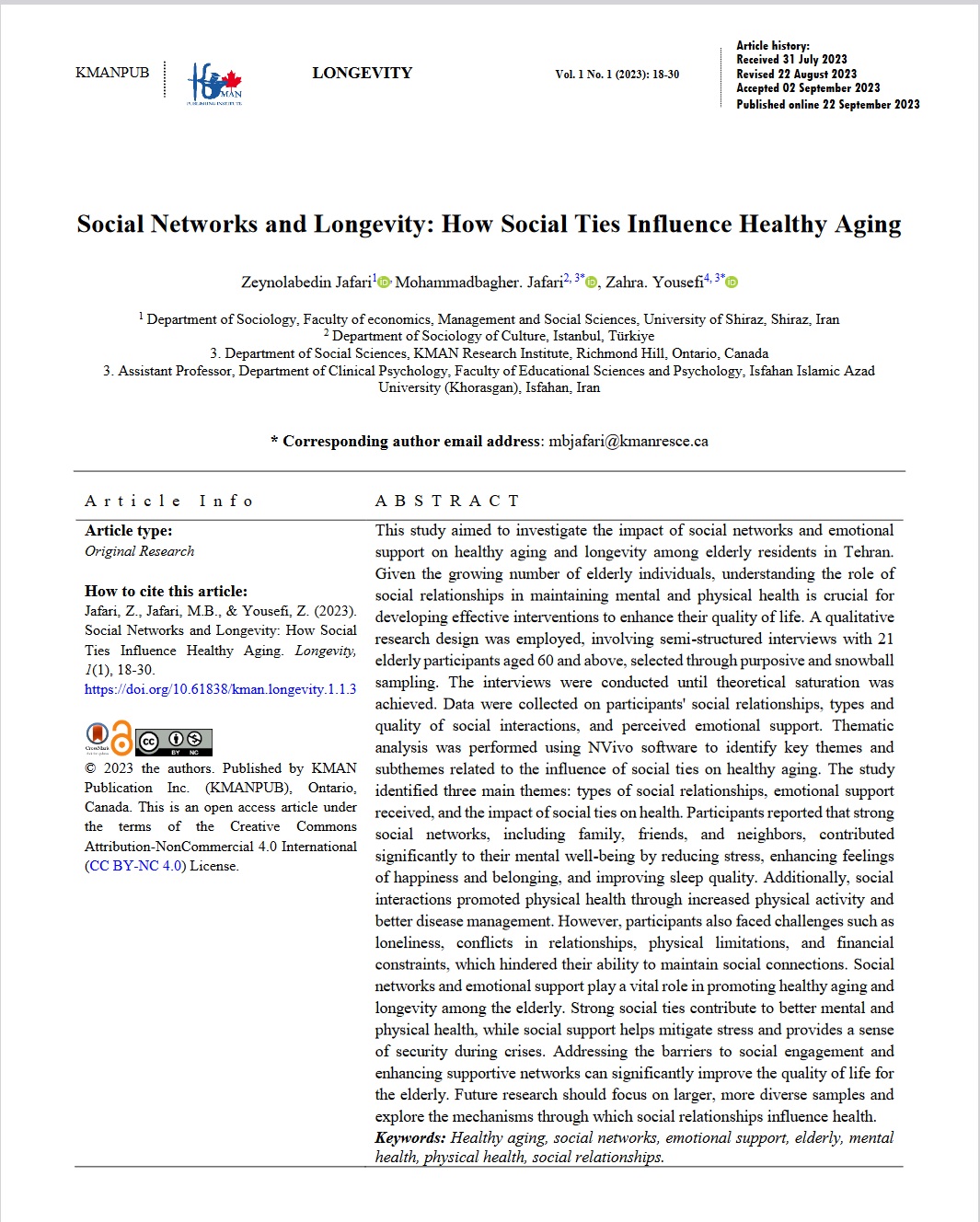Social Networks and Longevity: How Social Ties Influence Healthy Aging
Keywords:
Healthy aging, social networks, emotional support, elderly, mental health, physical health, social relationshipsAbstract
This study aimed to investigate the impact of social networks and emotional support on healthy aging and longevity among elderly residents in Tehran. Given the growing number of elderly individuals, understanding the role of social relationships in maintaining mental and physical health is crucial for developing effective interventions to enhance their quality of life. A qualitative research design was employed, involving semi-structured interviews with 21 elderly participants aged 60 and above, selected through purposive and snowball sampling. The interviews were conducted until theoretical saturation was achieved. Data were collected on participants' social relationships, types and quality of social interactions, and perceived emotional support. Thematic analysis was performed using NVivo software to identify key themes and subthemes related to the influence of social ties on healthy aging. The study identified three main themes: types of social relationships, emotional support received, and the impact of social ties on health. Participants reported that strong social networks, including family, friends, and neighbors, contributed significantly to their mental well-being by reducing stress, enhancing feelings of happiness and belonging, and improving sleep quality. Additionally, social interactions promoted physical health through increased physical activity and better disease management. However, participants also faced challenges such as loneliness, conflicts in relationships, physical limitations, and financial constraints, which hindered their ability to maintain social connections. Social networks and emotional support play a vital role in promoting healthy aging and longevity among the elderly. Strong social ties contribute to better mental and physical health, while social support helps mitigate stress and provides a sense of security during crises. Addressing the barriers to social engagement and enhancing supportive networks can significantly improve the quality of life for the elderly. Future research should focus on larger, more diverse samples and explore the mechanisms through which social relationships influence health.










